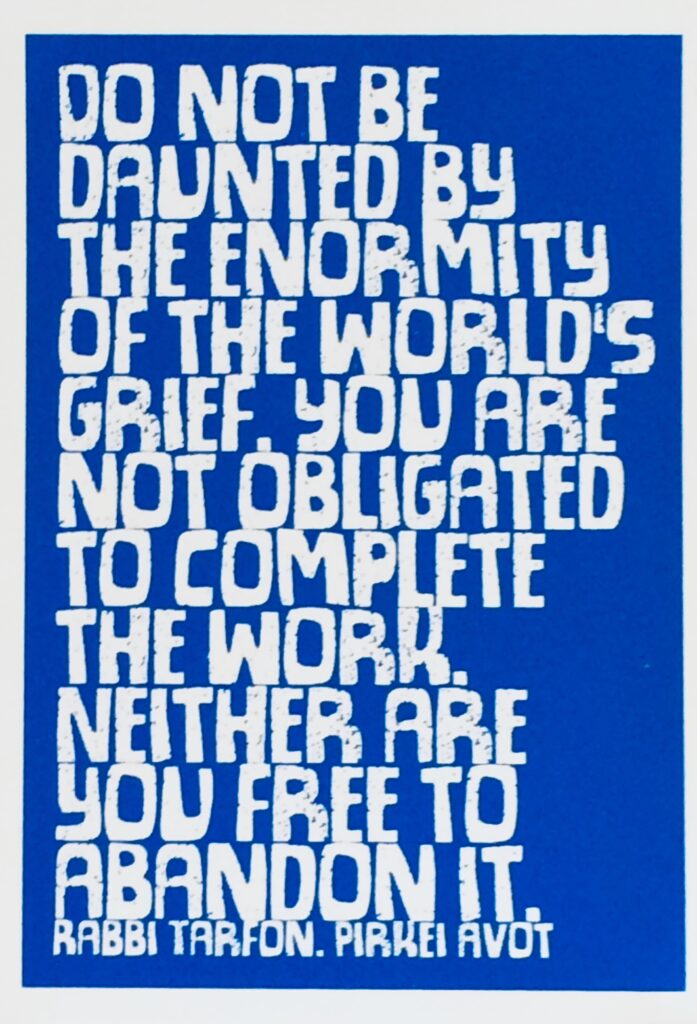In 1994 I purchased Harold Bloom’s The Western Canon after I had taken a leave of absence from my doctoral program in Religion and Society at the Graduate Theological Union in Berkeley. Bloom offered welcomed distraction during those difficult months with his championing of such writers as Jane Austen, Leo Tolstoy, Fernando Pessoa, George Eliot, Franz Kafka, Charles Dickens, Cervantes, Montaigne and Shakespeare. In the years ahead I would read and read these authors.
More than twenty-five years after that first encounter with the Yale professor, I read one of his last books, Possessed by Memory: The Inward Light of Criticism. Like its predecessor, it was intended for “the common reader,” not for academicians. Bloom has stimulated my reading and teaching life through such passages as the following…
When you have a poem by heart, you possess it more truly and more strangely than you do your dwelling place, because the poem possesses you. xx
A teacher bears testimony. Her function is both to exemplify and to provoke. Emerson taught me that what I can gain from another is never instruction but only provocation. 12
I do not know anything in Kabbalistic literature that equals the splendor and perpetual relevance of Pirke Aboth, the sayings of the fathers. That immensely moving collection of aphorisms constitutes the most humanizing tractate of the Talmuds. Even the grandest among the Kabbalists cannot stand with Rabbi Akiba or with Rabbi Tarphon. 25
As I have practiced it for sixty-three years, the work of a teacher is to bring the student into a sense of her or his own presence. 27
Though I resist, I am haunted always by the aura of transcendence that the Bible possesses for me. 54
… but many of them were troubled by my insistence that nothing in Tanakh (the Hebrew Bible) stated that a people or individual could become holy through study. Although that seems now the most Judaic of commonplaces, it did not exist before the Platonic influx into second-century B.C.E. Palestine. 66
My lifelong experience is the the book of Ruth is the most beautiful work in all the Hebrew Bible. It is economical, benign, and loving. 70
I am a Jew who evades normative Judaism. My religion is the appreciation of high literature. Shakespeare is the summit. Revelation for me is Shakespearean or nothing. 144
The strongest critic in Western literary culture is Dr. Samuel Johnson. Throughout my log life, he has been my model, though I am aware I cannot achieve his intellect, knowledge, and energy. Johnson teaches me that criticism, as a literary art belongs to the ancient genre of wisdom literature. 171
From childhood through old age, I have been made uncomfortable by a God who demands sacrifices that are also thanksgivings. Post-Holocaust, this will not work for many among us, and I frequently retreat from the Psalms to the poetry of Paul Celan, which has a difficult rightness, and does not seek to praise what no longer can be praised. 308
Though Proust had a Jewish mother, he seems to me neither Christian nor Jewish. His wisdom is his own, and though it has an analogue to Shakespeare’s detachment, I think it is indeed closer to Hindu philosophy. There is a curious difficulty here. All of Proust turns upon erotic relationships, yet in time all of these are renounced or abandoned. And yet, without them, In Search of Lost Time could not have been composed. Marcel observes that Albertine fertilized him through unhappiness. 480
Our beloved dead live only as long as we absorb them into our daily thoughts and feelings. When we die, our own survival will be the extent to which we have changed the lives of those who come after us. 506
